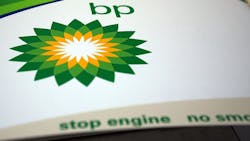BP plc announced June 29 that it had agreed to sell its petrochemical businesses to Ineos for a consideration of $5 billion. The deal, which includes BP’s aromatics and acetyls businesses, will transfer 1,700 employees and 14 manufacturing sites around the world and is expected to close before the end of the year.
BP confirmed the agreement would strengthen the company’s balance sheet ahead of schedule as it aims to reinvent itself as a green energy company and copes with economic fallout from the pandemic. The sale means that BP has reached its goal of selling $15 billion in assets by 2021. Ineos will make an initial deposit of $400 million, then $3.6 billion on completion of the deal, and the remaining $1 billion in installments over the course of 2021.
According to information on BP’s website, the sale will involve plants in South Carolina, Texas, Trinidad and Tobago, the U.K., Belgium, China, Indonesia, Malaysia, South Korea and Taiwan. Under the terms of the deal, Ineos also has an option to purchase or lease a research complex in Illinois.
BP had already sold most of its petrochemicals business to Ineos in 2005, but retained its aromatics and acetyls businesses. Brian Gilvery, BP’s CFO, acknowledged BP’s “long relationship” with Ineos, and said the sale “reflects the mutual respect and trust that exists between us. It is a strategic deal for both parties that recognizes both the high quality of the businesses and that Ineos is in many ways a natural owner for them.”
In a statement, BP CEO Brian Looney noted that the “overlap with the rest of BP is limited” and that substantial investment would be needed for BP to grow the businesses. “Today’s agreement is another deliberate step in building a BP that can compete and succeed through the energy transition,” said Looney.
Ineos CEO Sir Jim Ratcliffe said that acquiring the businesses provided “great scope for expansion and integration” with his company. “This acquisition is a logical development of our existing petrochemicals business extending our interest in acetyls and adding a world leading aromatics business supporting the global polyester industry,” he wrote.
Looney also stated that the business’ sale was another step in reducing BP’s reliance on fossil fuels as a revenue source. “Today’s agreement is another deliberate step in building a BP that can compete and succeed through the energy transition,” he wrote. In February, the oil company pledged to produce no net carbon by 2050, including carbon generated using their products.
Earlier in June, BP announced it would lay off 10,000 people by the end of the year as it struggled to make money amid crushingly low oil prices. After the company’s debt rose by $6 billion in the first quarter, the company announced it would reduce capital expenditures by 25% in 2020, or roughly $3 billion, in addition to cutting workforce costs by $2.5 billion through 2021.
About the Author
Ryan Secard
Associate Editor
Ryan Secard joined Endeavor B2B in 2020 as a news editor for IndustryWeek. He currently contributes to IW, American Machinist, Foundry Management & Technology, and Plant Services on breaking manufacturing news, new products, plant openings and closures, and labor issues in manufacturing.
